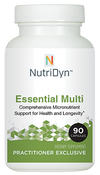- In 2017, an estimated 94 percent of older adults received a prescription for a drug that increased their risk of falling.
- Startling increase from 57 percent in 1999, according to the research.
- The study also found that the rate of death caused by falls in older adults more than doubled during the same time period.
- The scientists obtained their data from the Centers for Disease Control and Prevention's National Vital Statistics System and the Agency for Healthcare Research and Quality's Medical Expenditure Panel Survey
- Women were more likely than men to be prescribed drugs that raised the risk of falls, especially African American women.
- They received the medications at the highest rate compared with women of other races, followed by White females, African American men and then White men.
- White women who were 85 and older experienced the largest increase in deaths from falls, rising 160 percent between 1999 and 2017, the study say
Medication Management and Fall Prevention in Older Adults
- News
- 16 Jun, 2021
- Posted By: Reed Wilson
By Marlene Cimons, Special To The Washington Post
If you are 65 or older, you probably take at least one prescription drug, possibly several, as well as over-the-counter medications. These may include drugs that lower blood pressure, improve mood, prevent seizures or fight allergies, among others. While there are good reasons to use them, experts say that many of them also can raise the risk of potentially dangerous falls.
"These drugs are doing what they are supposed to be doing, but also are working off target," says Amy Shaver, a postdoctoral researcher in the Department of Epidemiology and Environmental Health at the University of Buffalo School of Public Health and Health Professions, and lead author of a recent study that examined the problem. "There are valid reasons to prescribe them. But they can be problematic."
- In 2017, an estimated 94 percent of older adults received a prescription for a drug that increased their risk of falling.
- Startling increase from 57 percent in 1999, according to the research.
- The study also found that the rate of death caused by falls in older adults more than doubled during the same time period.
- The scientists obtained their data from the Centers for Disease Control and Prevention's National Vital Statistics System and the Agency for Healthcare Research and Quality's Medical Expenditure Panel Survey
- Women were more likely than men to be prescribed drugs that raised the risk of falls, especially African American women.
- They received the medications at the highest rate compared with women of other races, followed by White females, African American men and then White men.
- White women who were 85 and older experienced the largest increase in deaths from falls, rising 160 percent between 1999 and 2017, the study say
Because Shaver's research studied only population trends, she cannot fully explain the alarming rise in prescriptions and fall-related deaths, but "opioids may have played a part, as more were prescribed during that period," she says. "Then, as that decreased, more anti-depressants were prescribed. I think the increase also may have to do with antihypertensives being prescribed more. But our work was done at a population level. We didn't look at individual people who'd taken drugs, had falls and died."
Between 1999 and 2017, more than 7.8 billion fall-risk-increasing drug orders were filled by older adults in the United States, the majority for antihypertensives, which treat high blood pressure, the study says. The use of antidepressants also rose sharply, however, from 12 million prescriptions in 1999 to more than 52 million in 2017, according to the study.
The study also found that women were more likely than men to be prescribed drugs that raised the risk of falls, especially African American women. They received the medications at the highest rate compared with women of other races, followed by White females, African American men and then White men. White women who were 85 and older experienced the largest increase in deaths from falls, rising 160 percent between 1999 and 2017, the study says.
"I'm not sure why this is the case," Shaver says, referring to the disproportionate prescribing among women and why they are at such risk if they fall. "Until we can do an individual level study, it's speculation. It may be in part because women carry less muscle (than men) and have less bone density."
Every year, millions of Americans 65 and older - one out of four - suffer falls, which are the leading cause of fatal and nonfatal injuries in this age group, according to the CDC. Even a nonfatal fall can be serious, especially if it results in a fracture or head injury. Three million older Americans are treated in emergency rooms annually after falling, and 800,000 are hospitalized, the CDC says.
"If you fall and break a hip, the statistic of your making it out of the hospital are not so good," Shaver says.
Other factors also can contribute to older people falling, including lower body weakness, vitamin D deficiency, difficulty with walking and balance, and vision problems. But the risks from prescription drugs present an especially thorny dilemma, since many of these medications are important for older patients suffering from sleep disorders, anxiety, high blood pressure, chronic pain and other conditions.
Drug bottle labels generally do not warn of the risk of falls. But they do describe potential side effects - such as drowsiness and dizziness - that raise the risk of falls, and often caution against driving or operating machinery. Some drugs also can impair cognition and judgment, affect mood, and produce lightheadedness, loss of balance, blurry vision, slower reaction time, and wooziness. To try to address this, the CDC has launched a campaign to improve collaboration between health providers and pharmacists to assess patients' medications and screen them for their risk of falls.
Experts aren't suggesting that physicians stop prescribing or - in the case of OTC products - stop recommending these drugs.
"But patients should ask about side effects," Shaver says. "They should make sure all their doctors know all the drugs they are on, which often is not the case, particularly if they take more than one. They may get one drug from a specialist and another from their primary care physician, and they end up with medications that have interactions - but their providers don't know about them."
Patients need to be proactive about the medications they take, she adds.
"They need to ask whether a medication could make them more likely to fall when they are first given a medication," she says. "And, even if they have been on a medication for a while, they need to remain vigilant and look for the warning labels on their medications and ask questions. They should talk to their doctors and pharmacists about what those side effects could mean, and what they can do to ensure they stay safe and not fall. Patients shouldn't be afraid to ask a question."
She also recommends that health-care providers assess their patients for their fall risk using balance and cognition tests.
Greg Rhee, assistant professor of medicine (in psychiatric epidemiology) and public health (in health policy and management) at the University of Connecticut School of Medicine, also suggests that prescribers look for safer options, if they exist, particularly among anticholinergic drugs. These are medications that block the action of the neurotransmitter acetylcholine, which can cause involuntary muscle contractions. Doctors typically prescribe them for urinary, respiratory and gastrointestinal disorders, and also for treating depression. He agrees that multiple medications can be a problem.
"Older adults often develop multiple chronic conditions as they age," he says. "Among older adults with multiple chronic health problems, they often take a lot of medicines to manage their conditions, and these medicines often contain anticholinergic properties."
Rhee, who also holds an appointment at the Yale School of Medicine, has studied the effects of anticholinergic drugs. He says they can cause cognitive impairment - including memory problems - dementia, drowsiness, sedation, even hallucinations, all of which can increase the possibility of falls. His research into anticholinergics found that these prescriptions have remained stable over time, although varied by physician specialty and drug class.
Nevertheless, he urges caution.
"Older adults are vulnerable to these medications due in part to physiological changes as they age," Rhee says. "In general, older adults have a higher likelihood of developing adverse drug events from taking multiple medications. There are safer alternatives, and they depend on medication classes. A number of medication classes, for example antipsychotics and anxiolytics (drugs that reduce anxiety), can have anticholinergic properties.
"It is, however, still possible that physicians (will) prescribe those with anticholinergic properties," he adds. "More careful medication review is needed in prescribing practice to minimize the use of high-risk anticholinergic medications."
Shaver says that prescription medications that raise the risk of falls are not necessarily "bad in and of themselves, and not everyone who takes them is going to have a fall."
"But patients need to be aware," she says. "There needs to be more of a conversation."
About Blog
We're more than just a store. We're putting over 100 collective years of functional nutritional education and experience into the articles we write and share. Check out our recipes, tidbits, and updates to stay informed.
Recent Posts
-
-

-
When Should I Take Omega-3s for Maximum Benefits?
26 August, 2024
-
-
-

-
Can Exercise Help Manage Diabetes?
26 August, 2024
-
-
-

-
Don't Forget Back to School Health and Nutrition
10 August, 2024
-
Tags
- All
- Air Fryer Recipes
- anti-aging effects*
- antioxidant cellular activity
- Appetizers Healthy
- Arthritis Relief
- avocados to truffles and lobster.
- Big Box Retailers
- Brain Health
- cardiovascular disease.
- Children's' Health
- Comfort Food
- Dairy Free
- diabetes is increasing globally at 4% per year.
- Disinfect Your Groceries
- Eat Takeout?
- Evils of salt
- Evils of Sugar
- Evils of western diet
- Food to Increase Longjevity
- gastrointestinal health
- gluten free
- Gluten Intolerance
- greens
- gut microbiome
- Healthy
- healthy cardiovascular
- healthy immune response
- healthy prostate enzyme
- hypertension or high triglycerides.
- Improve metabolic path ways
- Major improvements to www.drdirect4u.cp
- Metagenics
- Never Buy Vitamins
- New York's Attorney General’s Office lab test
- Obesity
- PEA: Pulseless electrical activity
- Promotes vitality. Supports healthy body composition
- promoting joint comfort
- Reed Wilson
- sakt
- Sum
- Summer Picnic
- Supplements
- Supplements ... From Big Box Retailers
- Supports athletic performance and active lifestyles*.
- Supports healthy bone mineral density and muscle strength*
- Tempeh
- Tofu
- Type 2 diabetes and fatty liver disease
- Vegan
- Vitamins
- Vivienne
- Womens Health














